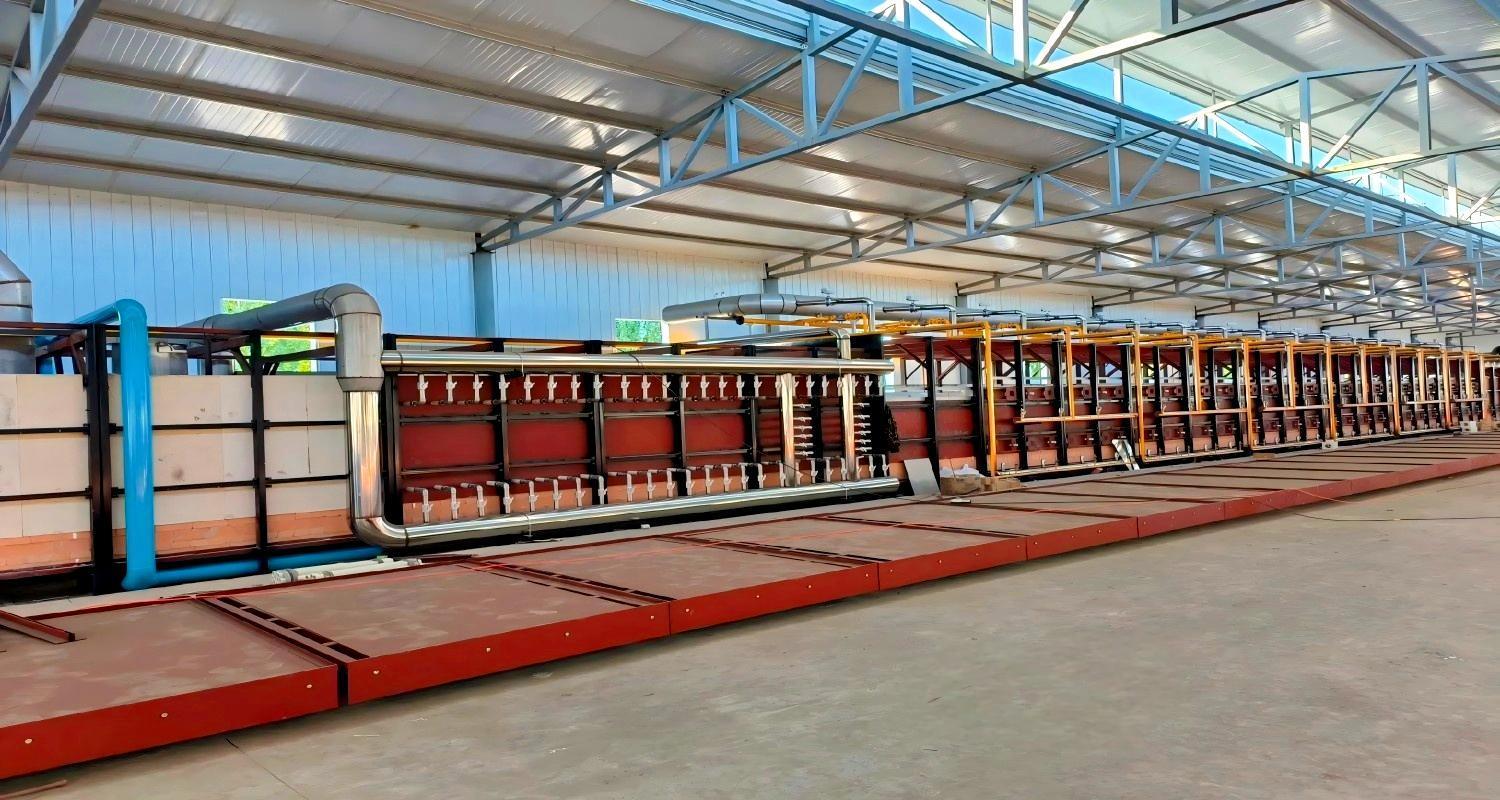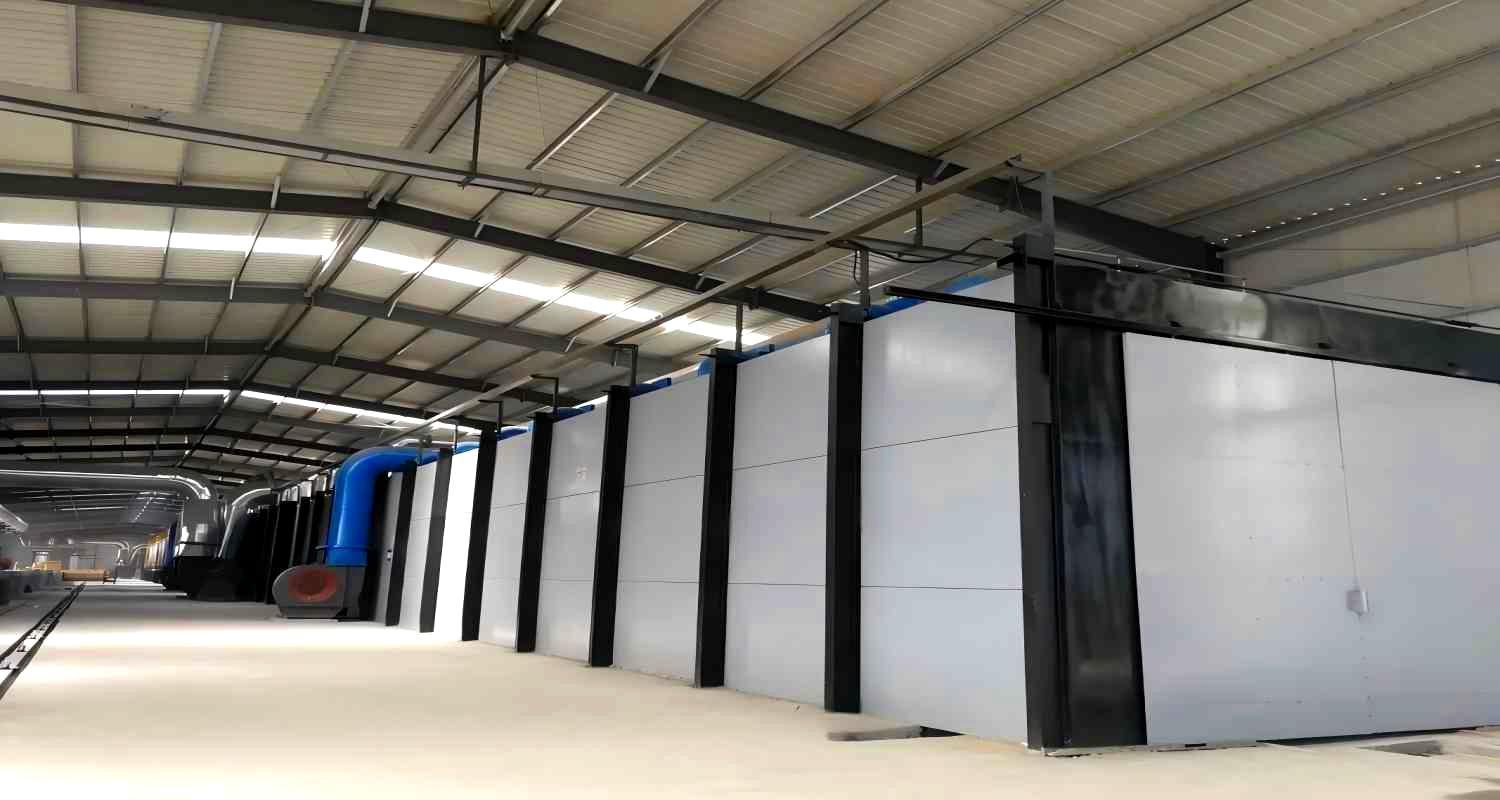Henan Yaxin Kiln Co., Ltd.
Understanding the Benefits of Roller Kilns in Industrial Processes
Sep 24,2025
Understanding the Benefits of Roller Kilns in Industrial Processes
Roller kilns have emerged as a pivotal technology in various industrial processes, particularly in the realms of ceramics, glass, and metallurgy. Their unique design and operational capabilities offer significant advantages over traditional kiln systems. This in-depth exploration aims to elucidate the numerous benefits of roller kilns, shedding light on their efficiency, versatility, and energy-saving features.
Table of Contents
- Introduction to Roller Kilns
- How Roller Kilns Work
- Key Advantages of Roller Kilns
- Applications of Roller Kilns in Various Industries
- Maintenance and Longevity of Roller Kilns
- The Future of Roller Kilns in Industry
- Conclusion
- Frequently Asked Questions
Introduction to Roller Kilns
Roller kilns are specialized industrial ovens that employ a series of rollers to transport materials through a heating chamber. This method of firing allows for uniform heating and precise control of temperature and atmosphere, resulting in high-quality products. The application of roller kilns has expanded significantly due to their ability to accommodate a wide range of materials and products.
How Roller Kilns Work
At the core of a roller kiln’s functionality is its innovative design. Materials are placed on a series of rollers that traverse through different heating zones. These zones are equipped with advanced temperature control systems that ensure even heating. The roller movement allows for continuous processing, which significantly enhances productivity compared to batch kilns.
The heating process typically involves multiple stages, starting with preheating, followed by firing, and finally cooling. This controlled environment ensures that the materials reach their optimal performance characteristics, whether in ceramics, glass, or other applications.
Key Advantages of Roller Kilns
Roller kilns offer a myriad of advantages that make them a popular choice in the industrial sector.
Efficiency in Production
One of the most notable benefits of roller kilns is their efficiency in production. The continuous operation enabled by the roller system allows manufacturers to produce large volumes of products without the downtime associated with batch processing. This high throughput capacity translates to lower operational costs and increased profitability.
Moreover, roller kilns often feature advanced automation systems that further optimize the manufacturing process. These systems monitor various parameters such as temperature and material flow, ensuring that production runs smoothly and consistently.
Versatility Across Industries
Roller kilns are incredibly versatile and can be tailored to meet the specific needs of various industries. Their ability to handle different materials, including ceramics, glass, and metals, makes them applicable in a wide range of sectors. Whether it’s producing high-quality ceramic tiles or crafting intricate glass designs, roller kilns can adapt to various production requirements.
Additionally, the design of roller kilns can be modified to accommodate specific product dimensions and heating requirements, providing manufacturers with the flexibility they need to innovate and expand their offerings.
Energy Savings and Environmental Impact
Energy efficiency is a critical consideration in modern manufacturing processes, and roller kilns excel in this regard. Their design reduces energy consumption through effective heat retention and distribution. Many roller kilns incorporate regenerative burners that recycle heat, further minimizing fuel usage.
By optimizing energy use, companies can significantly lower their operational costs while also reducing their carbon footprint. This is particularly important in industries where sustainability is becoming a key factor in consumer choice and regulatory compliance.
Applications of Roller Kilns in Various Industries
The utility of roller kilns spans multiple industries, each benefiting from their unique capabilities.
Ceramics Manufacturing
In ceramics manufacturing, roller kilns are essential for firing clay products. The ability to maintain precise temperature control allows for the production of high-quality ceramics that meet stringent industry standards. Roller kilns also facilitate the production of complex shapes and designs, supporting the creativity of designers and manufacturers alike.
Glass Production
For glass production, roller kilns enable the controlled melting and forming of glass materials. The continuous operation ensures a steady output of glass products, ranging from flat glass sheets to intricate glassware. The thermal efficiency of roller kilns helps minimize waste and optimize the production process.
Metallurgy and Smelting Processes
In metallurgy, roller kilns play a critical role in processes such as sintering and smelting. Their capacity to handle high temperatures and aggressive atmospheres makes them ideal for processing metals and alloys. The continuous operation of roller kilns supports efficient production while ensuring the integrity of the metallurgical processes.
Maintenance and Longevity of Roller Kilns
To maximize the benefits of roller kilns, regular maintenance is crucial. A well-maintained roller kiln will operate efficiently and provide consistent output over its lifespan. Key maintenance practices include:
- **Routine Inspections:** Regular checks for wear and tear on rollers and heating elements.
- **Calibration of Temperature Controls:** Ensuring that the temperature regulation systems function accurately.
- **Cleaning:** Keeping the kiln clean from debris and material buildup to prevent operational issues.
Investing in maintenance not only extends the life of the kiln but also enhances its performance, ensuring that manufacturers can continue to reap the benefits of this technology.
The Future of Roller Kilns in Industry
As industries evolve, so too will the technology surrounding roller kilns. Innovations in materials and automation are expected to enhance the efficiency and capabilities of roller kilns further. The integration of smart technologies, such as IoT sensors and AI-driven analytics, will allow for real-time monitoring and optimization of kiln operations.
Additionally, as sustainability continues to be a focal point for manufacturers, roller kilns will likely adopt even more energy-efficient technologies, reinforcing their status as a cornerstone in industrial processes.
Conclusion
Roller kilns represent a significant advancement in industrial heating technology, offering numerous benefits that streamline production processes across various sectors. Their efficiency, versatility, and energy-saving features make them indispensable tools for modern manufacturers. As industries continue to prioritize quality and sustainability, roller kilns will play a crucial role in shaping the future of production. By understanding and leveraging the advantages of roller kilns, companies can enhance their operational efficiency and maintain a competitive edge in the market.
Frequently Asked Questions
1. What materials can be processed in roller kilns?
Roller kilns can process a variety of materials, including ceramics, glass, metals, and composites, making them versatile for multiple industries.
2. How do roller kilns improve energy efficiency?
Roller kilns utilize advanced heating technologies and designs that minimize heat loss and optimize energy use, contributing to lower operational costs.
3. What are the typical maintenance requirements for roller kilns?
Regular inspections, calibration of temperature controls, and cleaning are essential to maintain the performance and longevity of roller kilns.
4. Can roller kilns handle large production volumes?
Yes, roller kilns are designed for continuous operation, allowing for high throughput and efficiency suitable for large-scale manufacturing.
5. How do roller kilns compare to traditional batch kilns?
Roller kilns generally offer higher efficiency, better temperature control, and the ability to produce uniform products compared to traditional batch kilns.
PREVIOUS:
Contact Us
E-mail:
Phone:
Address:
Suixian Industrial Agglomeration Zone, Henan Province





